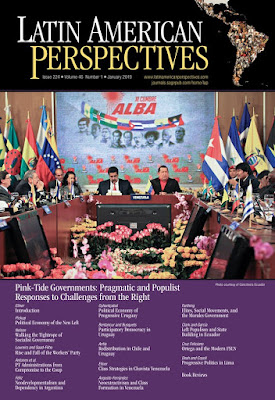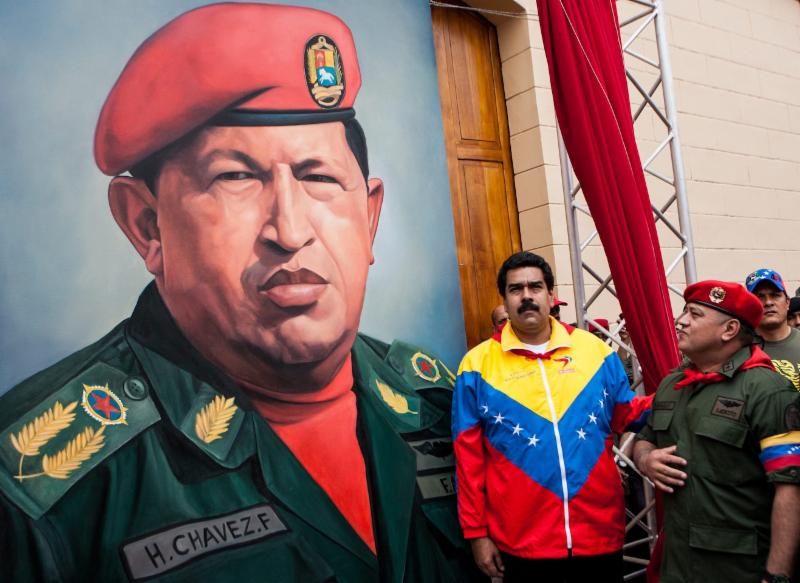Political Report # 1443
|
Q: Venezuelan forces killed eight people and arrested several
others—including two former U.S. Green Berets—in a failed
attempt earlier this month to infiltrate the South American
country by sea. Another former U.S. Green Beret purportedly
masterminded the attack, which its organizers code named “Operation
Gideon,” while Venezuelan opposition leader Juan Guaidó and U.S. President Donald Trump denied involvement. How will the incident affect
support for Maduro and for Guaidó? How likely is the failed incursion
to lead to Venezuelan government crackdowns on Maduro’s opponents?
How does it affect the Venezuelan opposition’s efforts to unseat Maduro?
A: Peter Hakim, member of the Advisor board and president emeritus of the Inter-American Dialogue: “Juan Guaidó and his allies have suffered another sharp blow in their struggle to wrest control of the Venezuelan government. But this, by no means, should be viewed as the opposition’s last battle. Although ‘Operation Gideon’ was quickly stopped in its tracks, the Maduro regime remains feeble and unpopular. Indeed, it hardly governs at all. Mostly, it is just cruelly holding on to power. With the economy already devastated and hunger and malnutrition widespread, Covid-19 has made life even more hellish for Venezuelans. But the opposition forces are badly fractured. Without a unified plan of action, a minimal strategy or a clear set of priorities, they appear simply to be pursuing whatever opportunities come their way. Sometimes they succeed, for example, when Guaidó was praised by Trump and applauded by the entire U.S. Congress during the State of the Union—a clear diplomatic victory but without consequential follow-up. Failures have been more frequent, each leaving Maduro a bit stronger, while the opposition appears weaker and more disorganized. After the Gideon episode, the countries that recognize Guaidó as Venezuela’s legitimate leader have reason to be concerned about his judgment and leadership. What comes next? Probably more of the same, unless the United States unexpectedly revises its Venezuela policy, which today is fixated on ousting Maduro, using tactics that have left an impoverished population worse off. The opposition too, needs to change course, to demonstrate greater realism and patience. It needs to develop its own strategy and not depend on the United States for direction and initiative. The United States has little interest in Venezuela, aside from showing off its power and winning votes in Florida. The opposition needs to shift focus from quickly getting rid of Maduro to building a more unified, more potent political movement.” A: Steve Ellner, associate managing editor of Latin American Perspectives and retired professor of the Universidad de Oriente in Venezuela: “Every aspect of the recent attempt to topple the Maduro government points to Juan Guaidó’s lack of leadership capacity. The incident cuts into his support among both the radical opposition that backs the use of force and the majority of Venezuelans, who, according to polls, favor concrete proposals to solve pressing immediate problems over regime-change strategies. In the first place, Guaidó’s signature on the contract with the Florida-based Silvercorp USA disregards the history of operations of this sort, in which planners go to length to ensure the credibility of a Plan B consisting of denial of involvement in case of failure. In the second place, Guaidó’s commitment of $213 million to Silvercorp raises questions about the origins of such a large sum of money. In the third place, even those favoring a military solution are criticizing the use of foreign mercenaries. In the fourth place, the plan envisioned one of two scenarios, one naïve and the other questionable on ethical grounds. The choice of Macuto, with a strong navy presence nearby, for landing implied that the Venezuelan armed forces would spontaneously turn against Maduro, contrary to its behavior throughout 2019. The contract implied a possible drawn-out bloody confrontation with specified human targets including those close to Maduro and Diosdado Cabello. The Los Angeles Times reported that the incident has ‘buoyed’ Maduro. During his rule, Chávez counted on the backing of a sizable majority of voters. It is unlikely that most of them would support an opposition that incident after incident becomes branded ’Made in the USA.’ Some of this sentiment gets translated into support for Maduro, even among Venezuelans who fervently oppose his policies.” A: Charles Shapiro, president of the World Affairs Council of Atlanta and former U.S. ambassador to Venezuela: “In Season 2 of ‘Jack Ryan,’ six Americans on a boat set in motion events that bring down the ruthless Venezuelan dictator. While entertaining, ‘Jack Ryan’ is fiction. Nonetheless, the perpetrators of this incident appear to have used a TV script as their plan to depose Maduro. The reality is that Venezuela is a huge country, the military is thus far loyal to Maduro and Cuban intelligence is very good. The 2002 ‘coup’ against Chávez weakened the opposition for a decade while Chávez entrenched a system that destroyed the nation’s economy and the remaining vestiges of its democratic institutions. It should not surprise anyone that Maduro, who proclaimed himself Chávez’s ‘hijo político’ is trying to use this goofy incident to maintain himself in Miraflores while the country is ravaged by Covid-19, the economy requires last rites, oil production at 622,000 barrels per day has dropped to 1944 levels and oil prices have cratered. Maduro should be panicking. Instead, this incident has given him a lifeline while increasing the centrifugal force pulling at the fractious opposition coalition. What is bad for Guaidó is good for Maduro. Net result: this incident was an own goal. As for the fictional Venezuela of ‘Jack Ryan,’ President Nicolás Reyes is not nearly as ruthless or as corrupt as Maduro, the fictional economy is not nearly as bad as the real Venezuelan economy and the fictional military hesitates to shoot Venezuelan citizens while the real security forces have no compunction about repressing their countrymen.” A: David Smilde, senior fellow at the Washington Office on Latin America and professor of sociology at Tulane University: “It is important to remember that in the past three years since the Maduro government moved from electoral authoritarianism to hegemonic authoritarianism, the opposition has tried street mobilization, going to elections, international pressure and negotiations, all without results. Thus, this type of desperate measure should not surprise. Most damaging is Juan Guaidó’s failure to assume responsibility and clearly pivot to trace out a new strategy. This has produced a malaise within Venezuela and cast a shadow on his leadership among international allies. The opposition is hopelessly divided between those who think a strategy based on political mobilization and negotiation is the way forward and those who think that is naïve and just postpones foreign military intervention. Behind this, of course, is the Trump administration’s frequent statements that ‘all options are on the table.’ Few people close to the U.S. government think there actually is a military option, but it has captured the imagination of wide swaths of Venezuelans in the country and in the diaspora. Combined with a population being ground down by a humanitarian crisis exacerbated by U.S. sanctions, there is little chance the opposition will be able to mount a real political challenge to the Maduro government. At this point, the only way the current tragic equilibrium could be altered would be a change in the geopolitical interests and pressures at play. A negotiation between the United States and Russia, designation of a special representative by the United Nations or robust engagement by the European Union could reorganize the conflict.” A: Maria Velez de Berliner, managing director of RTG-Red Team Group, Inc.: “Covert actions to execute regime change are the task and responsibility of professional operatives, not of civilian amateurs such as the incompetent mercenaries of ‘Operation Gideon.’ As Sean McFate’s work demonstrates, ‘mercenaries are the future of war.’ But those mercenaries require training, reliable equipment, tactical support and must have proven ability to carry out their mission; and whoever sponsors them must have credible, plausible deniability. None of these conditions existed in ‘Operation Gideon.’ Few believe the United States and Guaidó had no previous knowledge of the action. Its failure resulted in a risible fiasco that narrowed the range of options of the United States and gave Maduro a public relations coup. With its support of ‘Operation Gideon,’ Venezuela’s opposition, led by Guaidó, demonstrated it is ill advised, naïve and woefully ignorant of the deleterious repercussions that failed actions such as ‘Operation Gideon’ have. It also shows the miscalculation of the United States regarding Maduro’s support. To execute regime change in Venezuela, the United States will need to: 1.) negotiate with Venezuelan Defense Minister Vladimir Padrino, because deposing Maduro must have the army’s support; 2.) know what to do with Venezuela’s colectivos, militias, guerrillas and sundry nonstate criminal actors; 3.) know the pros and cons of whoever takes power, from the Venezuelans’ perspective; and 4.) do all this professionally and, hopefully legally, not through amateurish, wishful actions such as ‘Operation Gideon.’ ” URL: https://venezuelablog.org/wp-content/uploads/2020/05/LAA200519.pdf |




